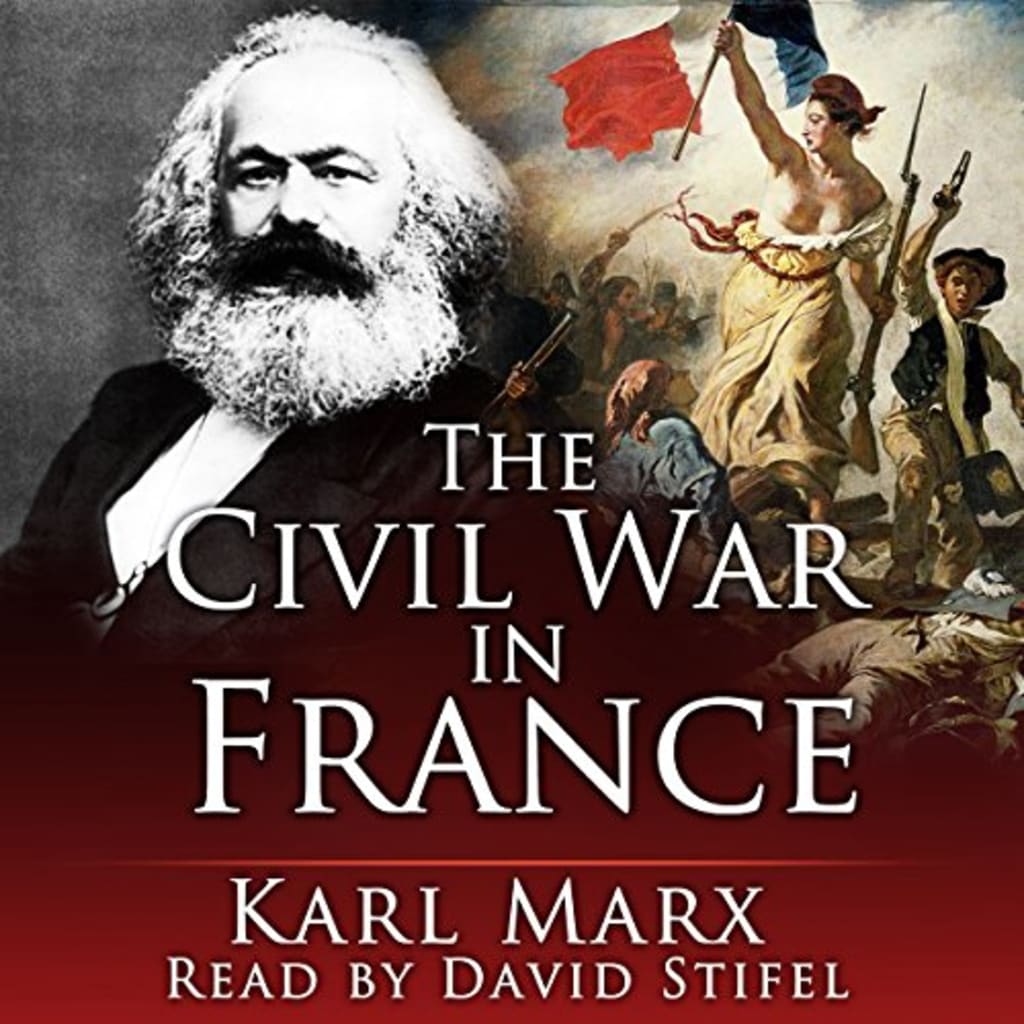Civil War in France by Karl Marx- Book review
Civil War in France by Karl Marx- Book review

Texts to transform the Civil War in France find their lessons and inspiration in Marx's account of the Paris Commune. A pamphlet based on First International lectures, an impressive and short history of society, and powerful anti-capitalist brutality. Although he wrote an introduction to emphasize the historical significance of what happened in Paris and its theoretical performance, Marx's book provides more details about the activities of the Communists, Blanquists, and proudhonists.
From mid-April to the end of May 1871, Karl Marx, who lived in London, collected and wrote pieces of English, French, and German newspapers on the progress of the Paris Commune where he met with violent Paris workers fighting outside security forces outside Paris. Karl Marx, now living in London, met from mid-April to the end of May 1871 and compiled English, French, and German newspapers later reporting on the continuation of the French civil war, which pitted the Parisian workers against foreign security forces. Commune was a living example of what Marx said about the workers' dictatorship: not only the new dictatorship but also the democracy of the working class over their abusers.
The magnitude of his opposition to his writings can be seen in the fact that all three published documents of the period between the Franco-Prussian war and the Eucharist, as well as Marx's two IWMA addresses on the French civil war, appear to be compiled by the International General Council. Marx did not establish the concept of true democracy in a small way; learned from the concrete example of the Paris Commune. And, of course, the lessons of the American Council played a major role in advancing the doctrine of the Marxist state.
Engels decided to include Marx's first international activities in his Franco-Prussian military account, to give the Committee more history.
Karl Marx had access to a personal interpretation of the events of the few leading figures of the Paris Commune with friends such as Paul Lafargue and Peter Lavrov. Marx intended to write a speech to the Paris staff and make a proposal on March 28, 1871, at a meeting of the Governing Body, but no proposal was accepted. Karl Marx and Friedrich Engels responded that, in their view, the Civil War was not a gross corruption, but a revolution that abolished slavery and empowered slave owners as a class.
It is worthwhile to avoid the myths and misconceptions about the International role played by Marx and Engels in Paris Commune. As George Haupt wrote, his Committee documents form the history itself, the second chapter in the history of the Committee itself. To provide an adequate account for pairs of interventions it is important not only to give prominence to the civil war in France but also to the prominent and lesser-known Marxist writings throughout the region, a series of documents incorporating various interventions.
Marx and Engels had lived in England before the American Civil War and fled from Germany to Europe after the fall of 1848. What impressed me about the commentators on the reforms of 1789 and 1794 was that while there were young men with dreams in Paris, the Committee was seen as the latest manifestation of the old ideology, made up of old men disturbed by war and political warfare.
Marx and Engels were part of an organization that opposed British intervention in the American Civil War. Karl Marx and Friedrich Engels presented a series of enlightening articles on political and military issues to the New York TribuneA and the Vienna newspaper Die Presse during the war.
Karl Marx, one of the most influential thinkers in the 19th century, reported and analyzed workers' rebellion against their bosses, their ideas are still new and controversial today. Marx acknowledged that the main reason for the Civil War was slavery, an economic system. the fine contains an angry introduction of Engels and an appendix with the decision of the General Council of the International Workers "Association.
Karl Marx takes a closer look at war, economic development, and the actions of political and military leaders. In general, some of the historical works of prominent historians and economists explain rather than theoretically and are in line with Marx's views on industry and class struggle. The most important in the world is the Committee, which seems to have been judged by history as the youngest in the first French uprising.
About the Creator
Cs Sapkota
#Blogger





Comments
There are no comments for this story
Be the first to respond and start the conversation.